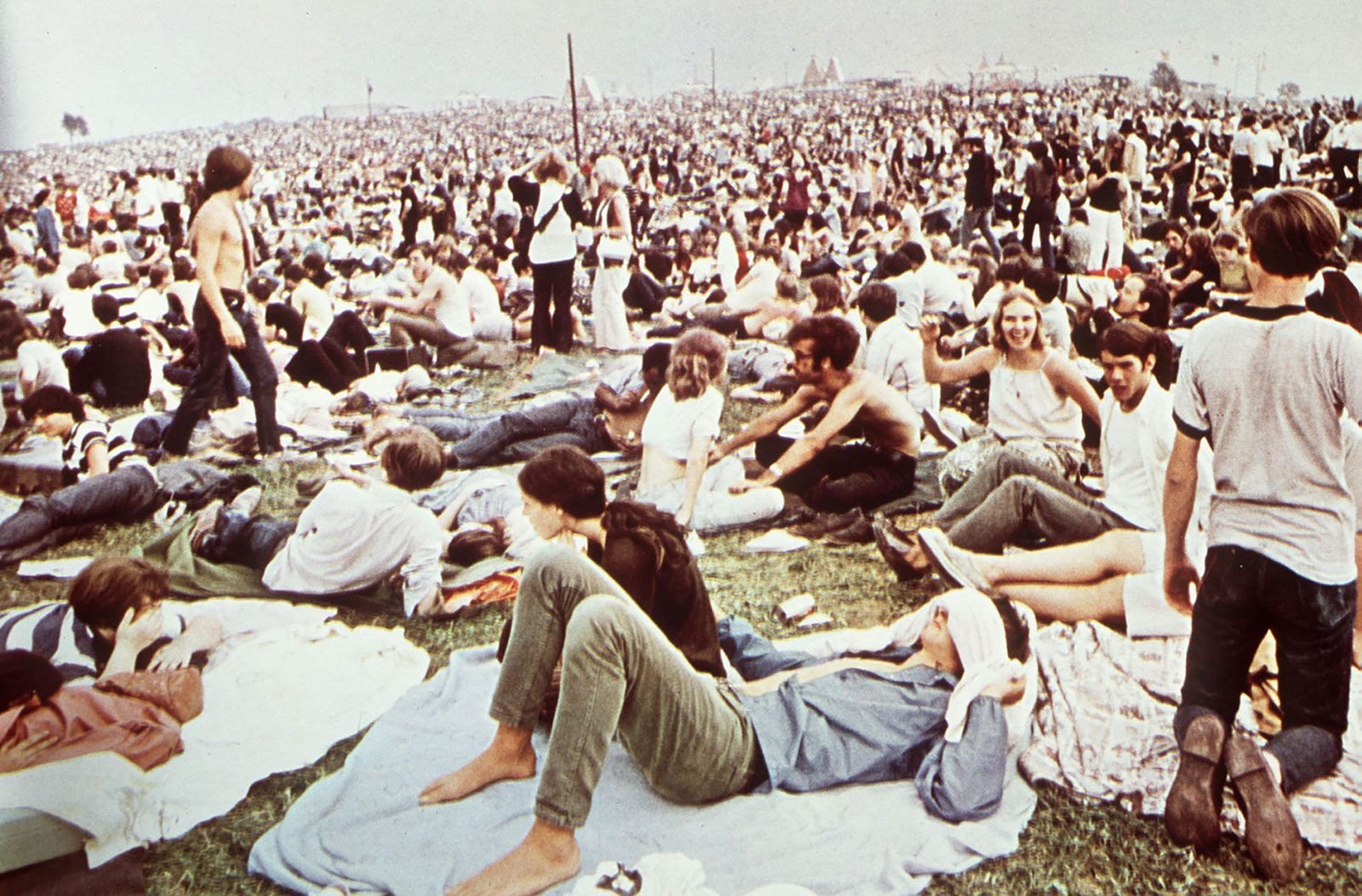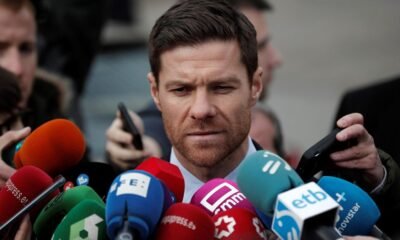Blog
Banned News: the USA music organization have finally announced to banned the Woodstock festival music due to the bad behaviors and…

Banned News: the USA music organization have finally announced to banned the Woodstock festival music due to the bad behaviors and…
**Banned News: The USA Music Organization Has Finally Announced to Ban the Woodstock Festival Music Due to Bad Behaviors and Mismanagement**

In an unprecedented and shocking turn of events, the USA Music Organization has officially announced the permanent ban of the iconic Woodstock Festival from its list of approved events. The decision to revoke the festival’s endorsement comes after a series of troubling reports regarding not just the quality of music but also the increasingly disruptive behavior and organizational mismanagement associated with the festival over the years. For many, this marks the end of an era for one of the most legendary music festivals in history, a festival that once symbolized peace, love, and the spirit of countercultural expression.
Woodstock, which first emerged in 1969 as a countercultural celebration of music and peace, has long been synonymous with the hippie movement and the ideals of freedom, unity, and artistic expression. However, in recent years, the festival has struggled to maintain its original vision, and its reputation has taken a significant hit due to various incidents involving mismanagement, chaotic behavior, and controversies surrounding its organizers. The decision to ban Woodstock, long considered the gold standard of music festivals, sends a powerful message about the importance of maintaining standards for artistic events and the need for responsible leadership in the music industry.
### The Rise of Woodstock and Its Cultural Significance
Woodstock was born out of a time of social and political upheaval, with the 1969 festival quickly becoming a cultural milestone. The festival was originally conceived as a peaceful gathering to celebrate music and the counterculture movement that was sweeping through the United States. It quickly became known for its iconic performances from artists like Jimi Hendrix, Janis Joplin, The Who, and countless others, who captivated audiences with their passion, creativity, and rebellion against the status quo.
Over the decades, Woodstock has grown from a one-off event to an enduring symbol of the cultural and political spirit of the 1960s and 1970s. The music festival was not just about the music—it was a statement. It represented a defiant stance against the establishment, a place where free-spirited youth could come together to challenge societal norms. Woodstock embodied the idea of unity through art, and in the years following the original 1969 festival, it became a brand—a legacy that would continue for years to come.
However, the glories of the original Woodstock event began to fade as the festival’s organizers attempted to revive it multiple times in the ensuing decades. Despite the initial success of the 1994 and 1999 revivals, things began to take a downturn as subsequent editions of the festival became increasingly associated with poor planning, overcrowding, and, most notably, troubling behavior among the crowds. While Woodstock was supposed to be a celebration of peace and love, in recent years it had become mired in controversies and incidents that questioned whether the festival could still live up to its ideals.
### The Decline of Woodstock: Mismanagement and Bad Behavior
The decline of Woodstock can be traced to a number of factors, but perhaps the most significant issue was the growing mismanagement of the festival, particularly as it became a massive commercial enterprise. The commercialization of Woodstock, which began with the festival’s reboots in the 1990s, seemed to shift the focus away from the original countercultural ideals and toward maximizing profit. The organizers’ failure to keep up with the massive increase in attendance—and the growing expectations for a smooth, well-organized event—led to numerous logistical problems and safety concerns.
One of the most notorious examples of these issues occurred during the Woodstock 1999 festival, which is now often remembered for the chaotic and violent behavior that erupted during the event. Despite strong headliners, such as Korn, Limp Bizkit, and Metallica, the festival became infamous for its disorganization. The venue was overcrowded, and the facilities were inadequate for the number of attendees. Reports of widespread drug use, public indecency, and violence began to circulate, including the horrifying scenes of fires being set and property being destroyed by a frenzied crowd. It was clear that what had once been a peaceful gathering had degenerated into a symbol of corporate greed and dangerous behavior.
While the organizers made attempts to distance the festival from these scandals and regain its former image, subsequent attempts at reviving Woodstock only seemed to exacerbate its problems. The 50th anniversary event in 2019, which was meant to mark the iconic festival’s return to its roots, was ultimately canceled after a series of failed negotiations, security concerns, and logistical nightmares. The festival was plagued by controversies from the start, with artists pulling out, financial struggles, and the ever-present issue of managing large crowds. Woodstock had become a shell of its former self, overshadowed by growing concerns about its ability to live up to its legendary legacy.
By 2024, the news of the official ban of Woodstock from the USA Music Organization seemed almost inevitable. The festival had become associated with an increasing number of incidents involving not just bad behavior by festival-goers but also allegations of mismanagement by the organizers. Whether it was overcrowded conditions, environmental hazards, or safety issues, Woodstock’s reputation as an organized, peaceful event had long since dissipated. Even the music itself, once a vibrant celebration of diverse sounds, had become overshadowed by the chaos and unpredictability that came with the festival’s reboots.
### The Official Ban: Why Now?
The official decision to ban Woodstock from participating in the USA Music Organization’s network of approved events was made after a thorough review of the festival’s impact on the broader music industry and the public. The USA Music Organization, which oversees the regulation and promotion of major music events, took into account numerous reports of safety violations, environmental concerns, and instances of misconduct. In a statement, the organization cited Woodstock’s “failure to uphold the standards of respect, safety, and professionalism that are required for inclusion in this prestigious network.”
The final straw that led to the ban was a series of incidents from the last few years, where attendees were reported to engage in dangerous behaviors that undermined the message the festival was once intended to send. These included widespread reports of drug overdoses, acts of violence, and even sexual assault, which tarnished the festival’s reputation and posed significant legal and ethical questions about its future. Additionally, the sheer scale of the event—with the festival drawing crowds of hundreds of thousands—had led to concerns about crowd control, environmental degradation, and the festival’s impact on local communities.
The decision by the USA Music Organization was also influenced by the increasing scrutiny of the festival’s organizational structure. Multiple reports indicated that the event’s planning was consistently rushed and underfunded, which led to poor infrastructure, a lack of adequate safety measures, and an overall lack of accountability by the festival’s management. As a result, it became apparent that Woodstock, for all its historical significance, could no longer be trusted to provide the kind of positive, safe, and enriching experience that both artists and audiences expect from major music festivals.
### The Broader Impact on the Music Industry
The ban on Woodstock marks a significant moment in the music industry, signaling the end of an era for the festival that once epitomized the spirit of freedom and rebellion. It also raises important questions about how festivals and live music events are managed in the modern era, particularly as the demand for large-scale events continues to grow. The issues faced by Woodstock serve as a cautionary tale for organizers of other major festivals, who may now be more inclined to rethink the balance between commercial success and maintaining the values that make music festivals such a unique experience.
The ban also opens the door for other, more progressive music festivals to step into the void left by Woodstock’s fall from grace. Smaller, more community-focused festivals with an emphasis on sustainability, inclusivity, and safety are likely to become the future of live music events. This shift could also see a renewed focus on the role of music festivals in fostering positive social change, rather than becoming another commercialized entertainment product.
### Looking Forward: The Future of Woodstock
While Woodstock’s ban from the USA Music Organization has effectively ended its reign as a major player in the American music festival scene, it does not necessarily spell the end of the festival entirely. Some believe that the event could still have a future if it undergoes significant reorganization, perhaps with new leadership and a commitment to embracing the principles of sustainability, inclusivity, and safety. For Woodstock to regain its former relevance, it will require a complete overhaul in its approach—one that respects both its historical legacy and the realities of modern-day music festival culture.
However, for now, the ban serves as a reminder that even the most iconic events must evolve to stay relevant and responsible. Woodstock’s fall from grace reflects broader concerns about the commercialization of music festivals and the potential harm that can come when ideals are abandoned in favor of profit. Whether or not Woodstock will ever return to its roots remains to be seen, but its ban marks the end of one chapter in music history and the beginning of another.
-

 AS Roma6 months ago
AS Roma6 months agoAffare fatto: la Roma acquista Federico Chiesa con una trattativa colossale.
-

 AS Roma8 months ago
AS Roma8 months agoRoma acquista Kalvin Phillips Il centrocampista del Manchester City
-

 Bayer04 Leverkusen9 months ago
Bayer04 Leverkusen9 months agoXabi Alonso sendet starke Botschaft an Bayer Leverkusen Fans
-

 Sevilla FC6 months ago
Sevilla FC6 months agoÚltimas noticias: La dirección del Sevilla transfiere el 75% de las acciones del club al multimillonario saudí para solucionar los problemas financieros.
-

 Real Betis7 months ago
Real Betis7 months agoEl Real Betis adquiere al mejor defensor de Valencia Cristhian Mosquera para fortalecer su defensa.
-

 AS Roma12 months ago
AS Roma12 months agoUltime notizie: la Roma in grossi guai mentre la UEFA ha risposto a Dybala che prendeva in giro Feyernood.
-

 Bayer04 Leverkusen11 months ago
Bayer04 Leverkusen11 months agoEilmeldung: „Xabi Alonso spricht im Medieninterview über seine Zukunft bei Bayer Leverkusen“
-

 AS Roma11 months ago
AS Roma11 months agoUltime notizie: la Roma è nei guai: João Pedro ha inviato un messaggio forte dopo il pareggio degli ottavi di finale di Europa.


